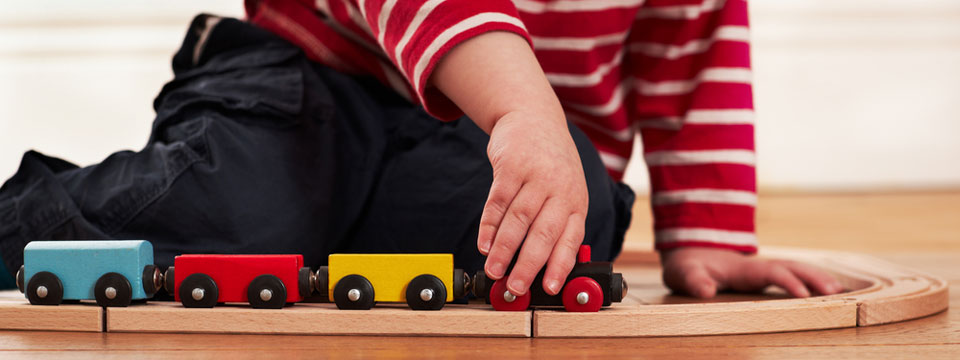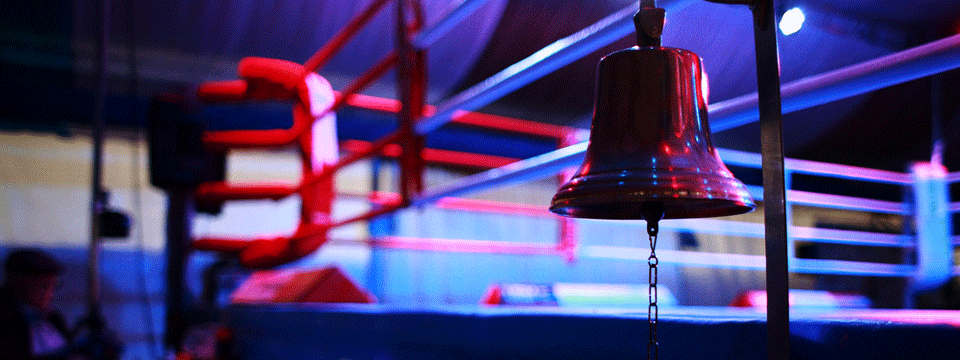
by Ashley Haupt | Nov 26, 2014
Our family is doomed to move in frigid temperatures. This last weekend, as the temperatures plunged across the country, we moved our family of six across town from one house to another. Despite the 20 degree temps, this move was the easiest move I have ever endured for one simple reason: minimalism.
No one likes moving. It’s tedious and troublesome and vulnerable and expensive. Your belongings are splayed out in boxes like the entrails of your life for everyone to see. You feel sorry for all the good-hearted, able-bodied people you know who feel obligated to come help you. You want to apologize for owning so much, and more than anything, you just want it to be over, even as the boxes keep coming and coming and coming.
In many ways, this time was no different, except we owned about half the amount of possessions than our last move 10 months ago. And we felt it.
The first evidence was how quickly we sorted ourselves out. We moved the last of our stuff into the house Friday night and spent Saturday unpacking. By Sunday, we were settled, and after church, we invited two couples over to share our soup which had been provided by church members. It was our first act of hospitality in our new house. Two days later, we had pictures on the wall and another family over to dinner.
Minimalism and hospitality are good friends. Most people want to show hospitality but feel constrained by the condition of their home. Either it’s not good enough, or it’s too much work. The truth is, the heart of hospitality has nothing to do with the quality of your home, but with your willingness to open it and share, as you are. However, your ability to host can be directly affected by your amount of possessions.
It’s as simple as this: the more stuff you own, the harder it is to keep your home clean. The more cluttered your home, the less you want to clean it up. The less frequently you clean, the less you are able to spontaneously invite anyone over. Pretty soon, you give up on hospitality: it’s too hard.
I speak from experience. I love to show hospitality. I am a quality-time person who loves to talk on a deeper level around the dinner table. But, when I had to spend so much time cleaning AND preparing for the meal, I was often so worn out that I did not enjoy it.
Two things have happened to change that: One, I have changed my expectations of hospitality. Two, I have purged our home to reduce clutter so that there is less time spent preparing for company.
- Changed expectations: Obviously, I don’t want to have dirty laundry out in the living room or filthy bathrooms, but I have lowered my hospitality requirements. I finally understand that if I wait until our home is perfect, or wear myself out trying to get it there, I will never invite people into it. When we had our first company in the new house, boxes were standing in the living room, but no one minded. We were all glad to enjoy soup and funny stories. I have invited families over with clean laundry piled on an armchair and dishes in the sink. This is real life and it’s high time we started letting others see our normal, so they can feel more comfortable inviting us into their norm, too.
- Less clutter=easier cleaning and more hosting. Just a few of my favorite tips:
- I look at my mail and the kids’ school papers right over the trash can, and toss the majority of each into it. I keep select items from school in a bottom kitchen drawer (for easy processing), and then transfer them into a keepsake notebook, but only a select few. Most get tossed. I also toss most church papers that come home. Even though they often contain devotionals for parents to do with kids, we streamline our family devotions using the Jesus Storybook Bible and other picture books kept in a basket by the table. Staying on top of our paper clutter goes a long way to keeping our home tidy.
- Baskets allow us to tidy up quickly and efficiently when we need to clear the floors and surfaces.
- Book-lovers like me tend to want to collect books as evidence of their literary prowess, but this is unnecessary. I do not keep any book unless I KNOW I will read it again or if I have not read it yet. I truly believe that most of us continue to collect books without actually reading the ones we have, but if we owned fewer books, we would actually read more. If you love books, share the love! Give them away freely and generously. Read the ones you have and then buy more. Keep your library circulating.
- Reduce the amount of toys for your kids. I am not suggesting you deprive your children; I am suggesting you buy them less things and spend more quality time with them. Kids will play with whatever is available, whether there is plenty or little. Even if they originally protest, their little imaginations will expand to fill the empty spaces once filled with colorful plastic knick-knacks.
For me, the bottom line is this; what atmosphere do I want in my home? I want it to be beautiful and useful, friendly and welcoming. I want people to be able to relax here, but also to open up, heal, let down, and be nourished. I want good food, quality conversation, rest and recreation. To achieve that goal, I need to have less clutter, less possessions, less toys. I am extremely thankful for our new home, and I want to show my thanks by offering it back to God to use for His glory, to make His name and His Son known and loved.
In the end, I subtract stuff to add more people into our lives. And that’s worth it every time.

by Ashley Haupt | Nov 5, 2014
Dear Church,
My backyard tree is blushing and dropping scarlet leaves everywhere, which means it’s November. I love November. Not especially for its weather which is typically dreary and gray, but for the emphasis on gratitude. So I want to start out November saying this: I am so grateful for you.
Familiarity breeds apathy. We’re all like butterflies, fitting around forgetting what beautiful patterns we wear on our wings because we can’t see them ourselves. Gratitude gives us fresh eyes, and today I want to lend you my sight to see your own beauty.
You, dear church, are a live coal. Never underestimate the power, potential, and warmth of a live coal. You aren’t perfect, and maybe you’re not where you want to be, but you are alive. Your core is hot, your heart is for your community, and your love for each other is evident and active. The Holy Spirit dwells within your midst. Like the wind, the Spirit blows where it will and some days are blustery and some days are calm, but I see the movement.
So many churches are consumed with a desire to grow rapidly in numbers. Yes, let us multiply! But as we look to increase our numbers, may November remind us to number with gratitude all that we already have. May we look around with fresh eyes and be thankful for the ones next to us on Sunday mornings. In pursuit of all you want to be, do not forget to praise God for who you already are.
I’m thankful for you, church. So very thankful to be doing kingdom work with you. You are alive! Christ is alive and active in your midst. I feel it, I see it, I give thanks for it.
What do we do with a live coal? We hold it close to our hearts and blow gently to fan the flame. I believe with all my heart this is how Christ feels about us, His bride. Take courage little flock. Your Father knows your needs; He sees your works; He is pleased.
Galatians 6:9
Let us not become weary in doing good, for at the proper time we will reap a harvest if we do not give up.
Love,
Ashley

by Ashley Haupt | Oct 27, 2014
Chuck Swindoll: Our nature is not to let go. Our nature is to possess. Mine!
Our family of six is preparing to move for the second time in a year. Nothing makes you evaluate your possessions like moving, am I right? If you have to pack something into a box, into a truck, into your new home, unpack it and find a home for it, you REALLY want to love it or need it a lot.
I have done a lot of thinking, evaluating, and reflecting through this process.
This is the end result: I am astonished
- at how much stuff we possess
- at how emotional it is to let go of stuff
- at how much stuff I have sold
- at how little anyone in the family has missed anything (seriously? Not one regret. Ok there was one. More on that later.)
- at how clutter affects our emotions and routines
- at how much time and energy is spent just managing all this stuff
- that I haven’t done this five years ago
Here’s how our minimalism happened, in brief.
First, we downsized to a smaller home and less square footage. Our fourth baby was two months old, and I had no time or energy to sort and sift, so we moved most of our possessions into our smaller home. We felt crowded.
Secondly, I felt like I was picking up toys or telling kids to pick up toys all day, every day. And when we asked the boys to clean their room, they seemed overwhelmed. When I went in to help, I felt overwhelmed. Something had to change. I started our minimalism journey with the boys’ room. I got rid of half their toys. We only kept a fraction of what they had before.
The result was fabulous. They played more, they could keep their stuff organized and cleaned up because they had fewer things to maintain, and their room was so much more pleasant. That was the beginning of something beautiful.
I began to slowly move this same process to each room of our house. Each room was the same—freedom, joy, lightness in the end.
First, I just gave stuff away to a local thrift store that benefits our community. I don’t do garage sales because it’s too much work. But then I discovered the joy of the online yard sale. I was hooked because it was so simple and I could quickly liquidize our unwanted items into cash. There were challenges: it was a hassle, people can be rude, and I had to do a lot more running around to meet people and exchange goods for cash. But these inconveniences were worth it to me to continue my minimalism project in our home AND make some extra money for our family budget.
When I started this journey, I didn’t know we would be moving again within the year. We are in the process of purchasing our first home now, and I am determined to move only our most valued and necessary possessions into it. The whole house is going through another layer of purging.
Five Reasons Why Christians Should Consider a More Minimalistic Lifestyle:
- Paul says that if we have food and clothing we should be content. This is not legalism. He is just reminding us what God actually owes us: nothing. Every so often when I get a little crazy over something I MUST HAVE, I remind myself of this principal. Food and clothing. Paul’s words remind us of Jesus’ words when he pointed to a field of lilies and a flock of birds. They go about their lives trusting Him and He provides. The truth is, in the United States of Advertising, we could be forever desiring one thing or another and spend our whole lives unhappy. Actually, the wanting and the anticipation is the sweetest part; when we work to save for something we want, we enjoy it more.
- God’s kingdom is opposite of the world’s kingdom. The last shall be first, the way to honor is through humility, and sometimes, the way to have more is to possess less. We can gain a whole world of stuff and lose our souls in the process. That doesn’t mean that anyone who owns many possessions is living in sin. Not at all. But it does mean we should be cognizant of our priorities and our spiritual values. At times, our faith will demand we part from the ways of the world. If it didn’t, it wouldn’t be worth much.
- We have so much to gain. Do you know how much time and stress is invested in keeping, cleaning, organizing, and maintaining your stuff? Or even just avoiding dealing with your stuff? How could that time be spent? There is no right or wrong way to spend our time, but there is us moving toward or away from relationships. Our possessions will wear out, but our souls and the souls of our families live on into eternity. Don’t think of it as loss; think of it as GAIN. You get rid of toys, you gain space, time and energy to read books together. You get rid of DVD’s, you gain space, money, and time to do crafts together.
- We become more authentic. I found, as I began to consider what to purge, that I possessed many things that symbolized who I want to be, not who I really am. We can choose what we do, but we can’t choose what we like to do. If you are holding onto a closet full of weights, scrapbooking supplies, health food books, whatever, just accept where you actually are right now. Let go of what you wish you were and find the emotional energy to embrace who you are. You are already loved right now. You won’t grow until you deeply accept that, and sometimes that means letting go of something you really want to work, but it just isn’t working.
- We find time for God. I truly believe that many Christians have a deep desire to grow, but are hindered by the stuff of life. Check out the third item in this warning list in Luke 21:34 “But be on your guard so that your hearts are not weighed down with dissipation and drunkenness and the worries of this life, and that day close down upon you suddenly like a trap.”
Also, look at the third kind of soil in Jesus’s parable in Mark 4:19:
“And others are the ones on whom seed was sown among the thorns; these are the ones who have heard the word, but the worries of the world, and the deceitfulness of riches, and the desires for other things enter in and choke the word, and it becomes unfruitful.” I hold no judgment for anyone on this matter; I see the same temptation within myself. But I am also excited to have found a tangible way to push back against the stresses, worries, and cares of life in order to pursue Christ.
Does minimalism appeal to you? Why or why not?

by Ashley Haupt | Oct 7, 2014
We have four children now, but when our first daughter was only a year old, my husband made a rather shocking statement.
“I’d rather Abby be a prodigal son than a legalistic Pharisee. It’s better to spend a season in the far country than an eternity in hell.”
It pierced my heart to think about Abby going through a season of rebellion, but slowly, over time I began to understand what he meant.
I agree whole-heartedly now.
I had a fire in my bones recently as I heard about a sister in Christ who had fallen into sin and in the devastation that followed, she was judged and labeled by a fellow Christian, a woman she admired for her (apparent) spiritual maturity.
It made me angry.
Of course we call sin what it is: missing the mark.
But when we truly understand grace, we also understand that there is no sin we ourselves would not commit, given the proper circumstances. That knowledge allows us to kneel in the ruins beside a broken sister and lift her head to see the face of Christ.
The last thing she needs is our judgment. The Bible tells us that the kindness of the Lord leads us to repentance. Our harsh words and quick judgments will not accomplish anything except to crush an already broken spirit.
There is one Judge, and one Lawgiver, and she answers to Him alone for her sin. She doesn’t answer to us. Our role is to restore her, gently, lovingly, graciously.
What made me so angry was that the judging person had a reputation of spirituality. But her response showed a Pharisee’s heart, ready to throw stones. She was an ambassador for Christ, and the message she delivered was one of anger and shame heaped on the sinner.
But Christ knelt in the dirt beside the woman who committed adultery. He lifted her out of her shame and told her to go and sin no more. He said that she who has been forgiven much also loves much.
And this, this is why we’d rather our children be prodigals than Pharisees:
Because prodigals come home.
Yes, they fall down. Yes, they get burned and scarred by sin. Yes, I would spare my children that pain.
But they come home to the Father.
They feel His arms around them and they know the love that restores their souls.
I hope and pray they don’t have to spend seasons in the far country.
But better a starving season in the far country that drives them home to the waiting Father than a lifetime of living self-righteously in their own strength.

by Ashley Haupt | Sep 15, 2014
Let’s first dispel the idea that our enemies are people far away in another country. Sure, we should love those people, but short of sending positive emotion-waves across the ocean like some kind of weak Morse code, we can’t really love them actively. Jesus must have meant someone closer to home.
In the panorama of personality types God has created, some types are going to clash. If you are facing one of these cataclysmic clashes in your own sphere, it can feel like World War III. When the word “enemy” provokes a mental image of someone, you know it’s time to address it in your heart.
In conflict, some people are fight, and some people are flight. I have been flight for as long as I can remember. I’ve read that gorillas only bite when they feel their strength is spent; the bite is the last bastion of self-defense. When I start biting back, I know it’s time to pray.
Sometimes we can walk away, and sometimes we can’t. We’re tempted to vent to others, but it only leaves us feeling bitter and sinful. That’s when you “go to the mattresses” with your own demons. You work on your fight against your flesh. You can’t change the contentious person; he is who he is until he gets tired of himself and wants to change, too. But you can change you.
Eleanor Roosevelt famously said that no one can make you feel inferior. Respectfully, I disagree. People can and will make you feel inferior, especially if it makes them feel better about themselves. Once. Maybe twice. Maybe Four times. Peck-Peck-Peck-Peck. They can, and they will peck until you say, “ENOUGH!” And at that point, you can either lay down and die, while they gloat over your dead body and say, “See! See! I was right!” Or you can roll away until you get to a safe distance and Rocky up.
Our fight is not against flesh and blood, and it’s not against the person we dislike; we have a real enemy who longs to see us live defeated. The opinions of others do not supersede what God says about us. So what do we do?
First, we hunker down in our proverbial nest with our Bibles and our weak little bird-prayers, and we choose to fiercely accept the love of Christ. This is where it starts. We love, because He first loved us. Then, once we’ve soaked up all we can hold, we choose to love ourselves, because, after all, Christ died for us, too, not just for our enemies. Third, we go to our inner circle, and we soak up their love too, like how my five-year-old drinks Coke with a straw, greedily. Even Jesus did this; He had 12 disciples, but Peter, James, and John were his special companions. We need our favorites as much as He did. Their love gives us great courage and joy.
Now, we are ready. Now we are armored up. Now, we go into the ring, not to fight, but to love our enemies loudly, like Mel Gibson when he wore blue face paint and a skirt. Maybe there’s a peck or two or three waiting for us in the ring, and we have to walk away again.
Or maybe, just maybe, there are no pecks. Maybe we were shadow-boxing a straw man all along. What was once an epic battle turns out to be nothing more than us wrestling with God, with ourselves, and He had to wound us to get our attention. And even though we walk with a limp for the rest of our days, we’re glad.




